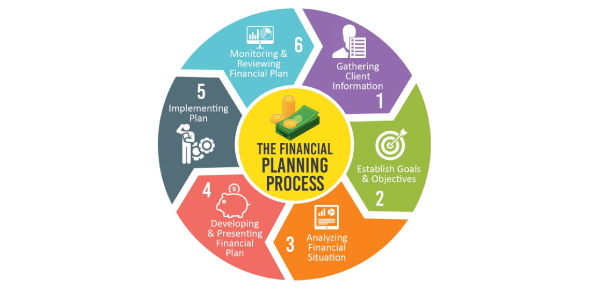How Skilled Are You at Financial Planning?
Anonymous User
Created 7/17/2024

Discover how adept you are at managing finances and planning for the future.
1. How do you typically manage your monthly budget?
I use a spreadsheet to track income and expenses, and make adjustments as needed.
I use financial software or apps to manage my budget automatically.
I write down my expenses and try to stay within limits.
I have a detailed budget plan including long-term and short-term goals managed through multiple tools and reviewing it regularly.
2. What is your strategy for building an emergency fund?
I set aside a small percentage of my income regularly.
My emergency fund strategy includes investments in low-risk vehicles to optimize growth while maintaining liquidity.
I occasionally save a bit of money when possible.
I have a defined savings plan to reach an emergency fund goal of at least 3-6 months of expenses.
3. How do you approach paying off debt?
I employ advanced debt reduction strategies, such as debt consolidation or negotiating lower interest rates.
I focus on paying off the smallest debts first to create momentum.
I make minimum payments to keep my accounts in good standing.
I prioritize paying off debts with the highest interest rates.
4. How do you set and monitor your financial goals?
I have a general idea of my financial goals but don't track them closely.
I write down my financial goals and review them occasionally.
My financial goals are part of a comprehensive financial plan that includes regular assessments and adjustments.
I use specific tools or methods to set detailed financial goals and review them regularly.
5. How do you track your spending?
I conduct detailed, regular reviews and analyses of my spending patterns using multiple tools.
I manually record transactions in a notebook or basic spreadsheet.
I use tracking software or apps to automatically categorize and monitor expenses.
I sometimes check my bank statements.
6. What is your understanding of investment strategies?
I have a basic understanding of stocks and bonds and occasionally invest through a brokerage.
I use sophisticated investment strategies, including options, futures, and other derivatives.
I diversify my investments across various asset classes for balanced risk and reward.
Investing seems complicated; I prefer to save money in a bank.
7. How do you understand and manage your credit score?
I monitor my credit report regularly and take corrective actions to maintain or improve my score.
I check my credit score periodically and aim to keep my payments timely.
I utilize advanced strategies to optimize my credit score, including balance transfers and credit utilization management.
I know it exists but haven't checked it recently.
8. What is your approach to retirement planning?
My retirement planning includes diversified investments, tax-advantaged accounts, and regular financial reviews.
I have a retirement account but don't contribute regularly.
I contribute regularly to a retirement plan and review my portfolio periodically.
I haven't started planning for retirement yet.
9. How do you utilize financial tools and software?
I haven't used any financial tools or software.
I use basic financial tools like calculators or budget templates.
I use advanced financial software for comprehensive planning, portfolio management, and tax strategies.
I use intermediate tools like budgeting apps and expense trackers.
10. How do you handle financial decision-making?
I make decisions based on basic research and advice from friends and family.
My financial decision-making process involves detailed data analysis and long-term projections.
I use systematic approaches like cost-benefit analysis for financial decisions.
I often rely on my intuition when making financial decisions.

